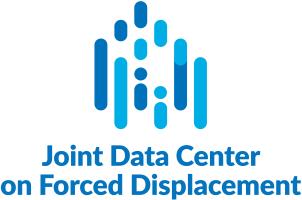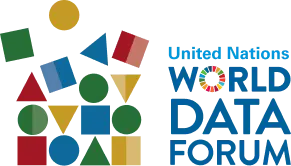

Innovation to increase the quality, timeliness, and accessibility of socioeconomic data on forced displacement
World Bank-UNHCR Joint Data Center on Forced Displacement
The objective of this commitment is for the JDC to develop and use innovative tools to accelerate and enhance the production, analysis, and discovery of socioeconomic data on forced displacement to improve its quality, timeliness, and accessibility. As a catalytic bridge between the World Bank and UNHCR on data, the JDC brings together the staff, resources, and capacities of both organizations. Through this commitment, the JDC will work to enable sustainable change for those affected by forced displacement by improving the evidence-base to inform policy, development planning, and humanitarian action.
The availability of high-quality, timely, and accessible data is essential for governments to set priorities, make evidence-based decisions and design effective policies. As advances in data science, machine learning and artificial intelligence drive improvements in the production of data and statistics, it is vital that they do so in a way that ensures the world’s most vulnerable are not left behind. Many governments continue to step up to the global challenge of forced displacement by providing generous support to those affected. In 2024, an estimated 123 million people are forcibly displaced worldwide, 71% of whom live in low- and middle-income countries. And yet, there is a widespread lack of high-quality, timely, and accessible socioeconomic data on forced displaced, which governments and their partners need to inform effective action.
The JDC will provide financial and technical support to UNHCR and the World Bank, as well as partnership convening for knowledge exchange and leveraging specialist technical skills, to develop and use innovative tools to accelerate and enhance the production, analysis, and discovery of socioeconomic data on forced displacement to improve its quality, timeliness, and accessibility.
The JDC 2024-2027 strategy will guide this support and engagement as it identifies three priority areas in which innovation can improve socioeconomic data on forced displacement. The intended outcomes of these activities are that UNHCR and World Bank teams, with the support of the JDC:
- Develop innovative open-source sampling tools and research methods to enable and improve the collection of representative and high-quality household survey data in forced displacement contexts.
- Drive improvements in socioeconomic estimates in forced displacement contexts by developing reproducible analytical models, which integrate data sources to improve accuracy, and which use alternative data sources to increase frequency.
- Increase the discoverability and accessibility of forced displacement socioeconomic data and evidence, through innovative approaches to data protection, data documentation, and information retrieval.
Progress towards this commitment will be monitored as part of reporting on the JDC strategy 2024-2027 through the tracking of progress towards the following three results targets:
- 9 JDC-supported innovative open-source tools or applications developed to improve the quality, timeliness, and accessibility of microdata collected in forced displacement contexts.
- JDC-supported innovative tools and methodologies are used in 14 forced displacement contexts, working with National Statistical Offices when appropriate.
- 14 JDC-supported research and guidance notes are published on innovative approaches to improving quality, timeliness, and accessibility of microdata.
